
Imagine the weight of 20 tonnes falling on you. Death would be instant.
This is cold comfort for a man like Ahmed Parekh who lost his son Aamir in 2006 when a shipping container fell on his car. Since then, the former Jamshed town nazim has devoted his life to researching container handling safety - which is largely absent from Karachi’s roads.
He estimates that at least 100,000 container-hauling trucks or trailers operate without anyone to check if they are complying with safety rules. All of them need twist locks on the four corners of the truck’s bed to hold down the shipping container. Instead, the transporters ignore the rules and tie the 20 to 40 tonne containers down with nylon or jute ropes.
There is a Rs100 fine for anyone who violates the rule but the traffic police do not have the power to impound the vehicle.
Since 2006, the authorities and terminal operators have repeatedly issued notifications saying that trucks ought to be equipped with twist locks. But the reality is that 59% of them still don’t have them, according to a survey by the Karachi Port Trust.
This hazard is compounded by the fact that out of every 1,000 trucks only 100 are made by authorised companies and the rest are roadside manufactured. “There has been an alarming rise in roadside manufacturing of trucks and trailers in Pakistan,” points out Syed Shariq Hasan, who is with the Automobile Corporation of Pakistan that has been building heavy vehicles for more than four decades.
Thus, even locally manufactured twist locks in Pakistan are not safe as standards or proper designs are not followed. “There are no regulatory guidelines for such companies and there is no authority to check what is being manufactured by them,” Hasan explains.
He points out that in addition to the problem of twist locks, these monster vehicles have poor braking systems. “Someone needs to make it mandatory for them to have an Air Brake System,” he says. “Not just in trucks but also in accompanying flatbeds so that all the wheels jam simultaneously.” This reduces the possibility of the twist locks fracturing due to the massive load.
For his part, Noor Khan Niazi, the president of the Karachi Goods Carriers Association, claims that 98% of their vehicles have twist locks. He accepts, however, that they are manufactured locally but says that “reliable lohaars” or smiths do the work.
“There isn’t any difference between vehicles manufactured by the ‘engineers’ of authorised companies and the vehicles manufactured by our ‘lohaars’ in local workshops,” he says. “Roadside manufacturing is even better in terms of quality and reliability.” The problem is that there is plenty of incentive to buy roadside manufactured trucks - they are up to Rs400,000 cheaper.
But the manufacturers are not the only people along the chain who can be blamed for the lack of safety when it comes to this business. Before 1996, the government was solely responsible for ensuring the rules were followed as private terminal operators worked under the Ministry of Ports and Shipping, according to ‘shipping guru’ Muhammad Ayaz, who has 31 years of experience in the industry and is the owner of Freight Logistic (Pvt) Ltd.
The formation of the Karachi International Container Terminal changed this. “Now the responsibility lies equally on private terminal operators.” And in fact, they now run most of the market share. “This means that the terminals should ensure that the containers are properly loaded and locked because the ‘delivery order’ is signed off and the truck leaves.”
There was some attempt in 2006 to enforce the rules. “After he lost his son, Ahmed Parekh stirred up a storm for the authorities and terminal operators by exposing the malpractices,” said an officer involved with logistics. “Initially everybody took certain measures to appear clean.” For example, Qasim International Containers Terminal, along with rest of the terminal operators, felt it necessary to publish a notification in newspapers in 2006 and then again in 2008. But nothing much has changed since then.
The checks have to be done at the Karachi Port and Port Qasim as they have the private terminals inside.
“The transporters are a powerful mafia and work under a union with their own terms and conditions,” the officer said. “They operate independently of the terminals, so at times we receive threats but more often strike calls. It becomes a daunting task to make them comply with the standards.” The International Convention on Safe Containers of 1986 states that containers should be transported only on vehicles with the four-corner fittings. According to Capt. Anwar Shah, the former director-general of Ports & Shipping, any violation of the CSC rules is not only a local violation but an international one as well.
For his part, Parekh warns that unless the authorities do something now, more lives will be at stake. He has his eye on the future. “An alarming situation could develop after the deep-water container port is developed,” he warns. This new port will increase container cargo from two million to five million boxes per annum.
Published in The Express Tribune, July 11th, 2011.
COMMENTS (5)
Comments are moderated and generally will be posted if they are on-topic and not abusive.
For more information, please see our Comments FAQ





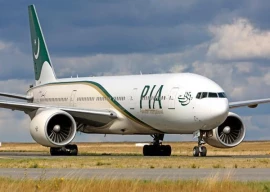
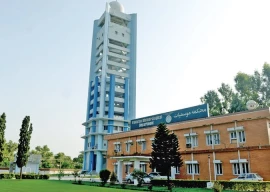

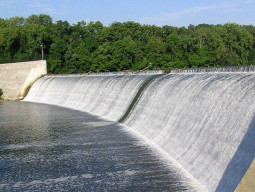



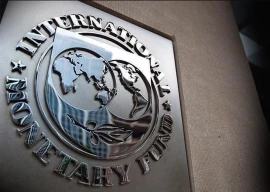

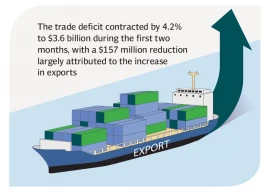

1725434334-0/Untitled-design-(35)1725434334-0-270x192.webp)






In route to Afghanistan form Karachi, these NATO containers, at times, serve as minor ‘drones’ on innocent Pakistani commuters. If Pakistani government can’t stop this lethal transportation which is in stark violation of IMO regulations in the absence of secure container transportation measures, then the officials should, at least, press the owners of such containers to compensate the victimized families
The massive movement of containers in Pakistan has got very less to do with the country's imports / exports as the economy has unfortunately remained depressed from quite sometime now. Most of these containers plying in the country are destined to carry goods to the landlocked Afghanistan under a trade agreement and are transporting supplies, fuel and ammunition for the NATO forces in Afghanistan.
The supply of goods, particularly to NATO forces in Afghanistan, has increased sharply since last 7 years, and therefore so is the heavy traffic's movement. There is an immense need to put proper checks to make sure that the rules are implemented, otherwise it could result in a terrible situation.
The Express Tribune should be praised for highlighting this often overlooked issue through this well-researched article.
Typical cargo truck used in India or Pakistan would not be allowed on the road in most modern countries - not sure it's economics or whether you just don't consider life as precious.
Thank you for drawing public attention to this extremely dangerous and unsafe practice. My own view is that even if a container is locked with the truck body with 4 twist locks, it could still offer a high risk of falling and doing the damage. Some of the other reasons areas follows:
Uneven body of the truck itself. This could be because of chasis geometry or uneven tyre pressures. Goods placed in the container in a manner that their centre of gravity is on one side rather than being in middle. Goods not secured within the container and shifting on their own to one side with the movement of the truck. High speed turns by the truck driver.I have seen trucks going on the road, whose containers are well tilted to one side although they are locked by 4 twist locks. So perhaps other factors need to be examined as much as the focus on twist locks. Thank you again for bringing up the subject. Best naeemsadiq@gmail.com
I myself witness a number of these deadly container loading trucks on my way to office through KPT bridge, Qayyumabad everyday. It feels as if the container would topple with every bump on the road. This is something very serious and should be dealt with extreme measures.